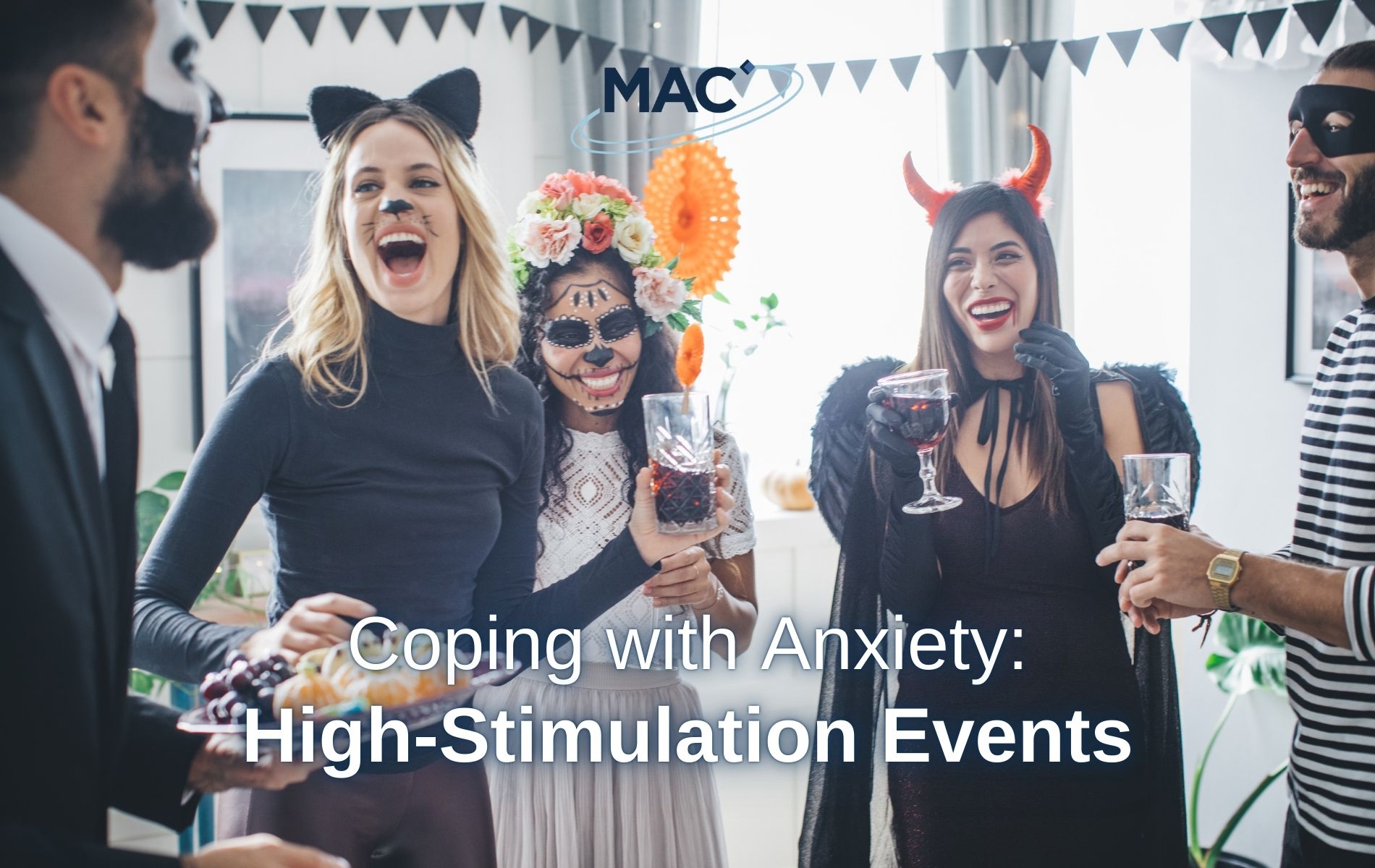From Halloween to Christmas, Bonfire Night to Hannukah, and Thanksgiving to Lunar New Year, as we head into the colder months, there are an increasing number of high-stimulation events. While this can be stressful for anyone, for those who experience sensory sensitivities (such as people living with anxiety, autism, and attention deficit hyperactivity disorder), the sensory overload of the event can lead to excessive levels of stress, panic attacks, and burnout1.
Why are high-stimulation events stressful?
When we are exposed to high levels of stimulation, it can lead to sensory overload. This happens when one or more senses receive overwhelming input, leading to a physiological reaction. Reactions vary between people, but usually feature a range of physical and mental symptoms that can include:
- Feeling overwhelmed or having difficulty concentrating and processing information
- Heightened anxiety or restlessness
- Mood swings, meltdowns, outbursts, and irritability
- Increased heart rate and breathing
- Sweating
- Muscle tension
- Headaches or migraines
- Fatigue or mental exhaustion2.
Triggers for sensory overload also vary between people, but common triggers include loud noises, bright lights, strong smells, and chaotic environments, like high-stimulation events. High-stimulation events are situations that offer a high level of sensory stimuli for the brain to process. Events with lots of loud, potentially unexpected noise, potentially intense smells and sights, and increased levels of casual touch like concerts, parties, and gatherings fit into this category. Festive celebrations can also be highly stimulating, and in some cases overwhelming.
Anxiety and sensory overload
Some people are more prone to sensory overload than others, such as those living with mental health conditions. It is estimated that up to 16% of the UK have symptoms related to sensory integration difficulties3, and research has shown that there is a relationship between sensory integration challenges and elevated levels of anxiety and depression4.
One of the reasons for this may be that anxiety incites our stress response, leading to a heightened state of arousal that can heighten sensory perception and reception. When we experience this feeling too frequently, it results in ‘stress-response hyperstimulation’ and can cause persistent heightened senses5. This state of being can make people living with anxiety more prone to sensory overload as their threshold for becoming overwhelmed is much lower.
How to keep calm during high-stimulation events
Managing sensory overload can be challenging, particularly when it is difficult to remove yourself from the situation, as with prolonged festive celebrations. However, some self-care techniques may help to mitigate feeling overwhelmed:
1. Practice mindfulness techniques that work for you
Introducing breathing exercises and other mindfulness techniques can promote calm and help guide your attention away from the source of your distress. It may act as a grounding mechanism to centre yourself in the moment.
2. Learn to identify and recognise your triggers
When you feel yourself encountering sensory overload, try to remember what triggered your anxiety response. By working to identify your triggers, you can begin to reduce or remove their impact on you; for example, you may want to build a sensory-friendly environment or create a routine that avoids overwhelming stimuli.
3. Make changes to your lifestyle
Lifestyle changes such as getting quality sleep through a consistent routine, regular exercise, and engaging in stress-reducing activities such as hobbies can help you manage your sensory overload.
4. Minimise your exposure to overstimulation where possible
Avoiding overstimulation and the situations that lead to sensory overload may also be helpful. This could look like setting boundaries and communicating your needs with others or creating a safe space where you can control your sensory input2.
Have you ever considered taking part in a clinical trial?
We are currently looking for people living with anxiety to participate in a clinical trial. All study-related assessments and medications will be provided to you free of charge, and study-related assessments will be paid for. With your participation, you may be able to contribute to scientific research which may lead to a new medicine to help people living with anxiety. Find out more about how to get involved on our anxiety study page.
References
2 Above and Beyond Therapy – What is Sensory Overload with Anxiety?
3 Sensory Integration Education – Children’s Mental Health in the UK: The Alarming Facts




